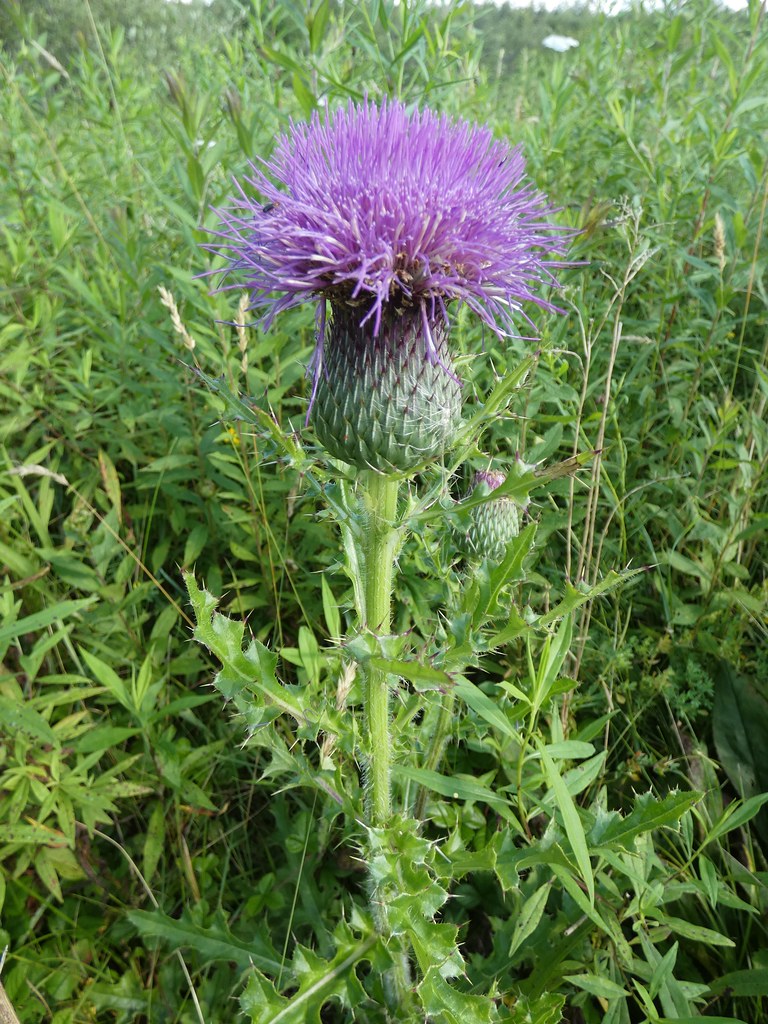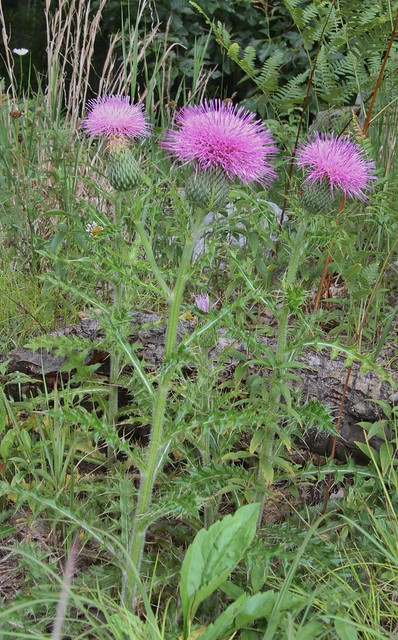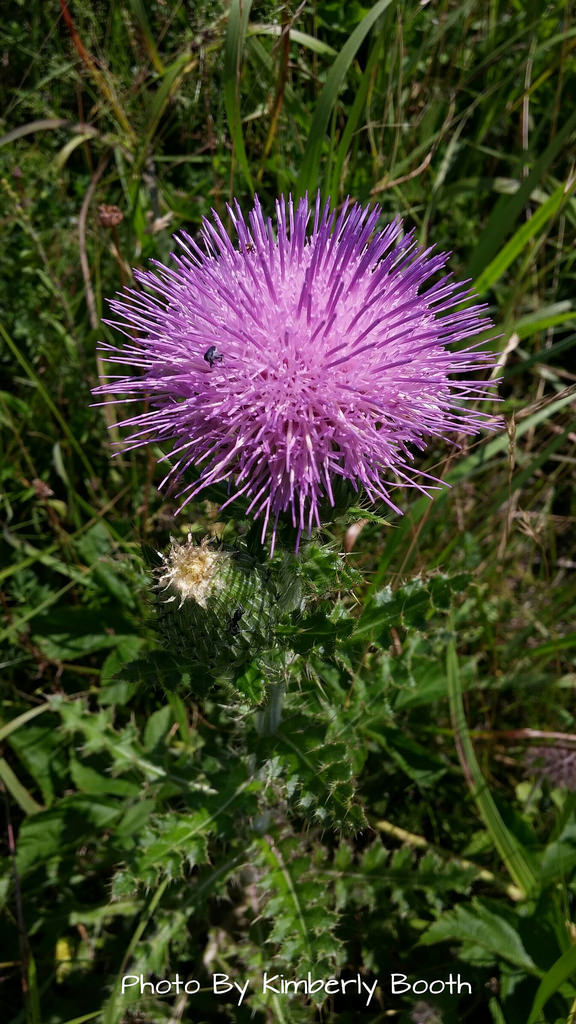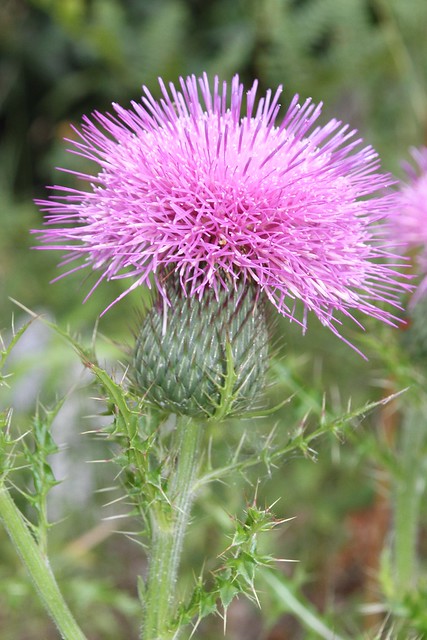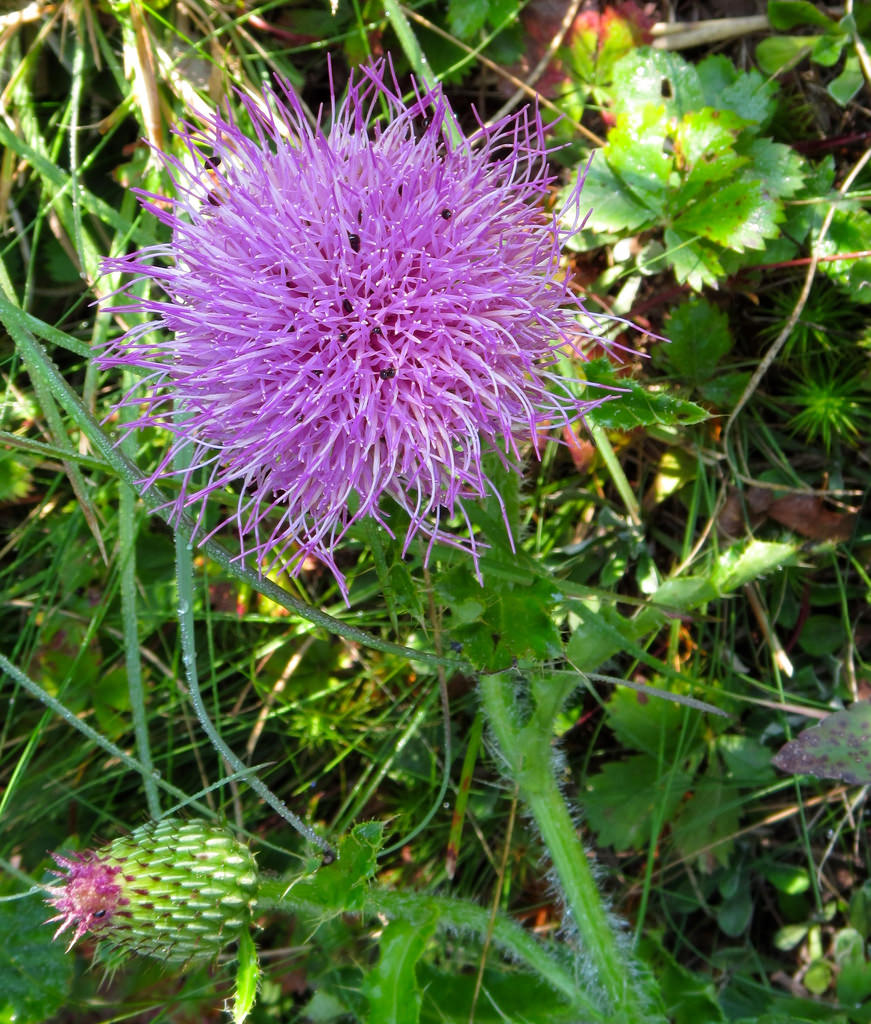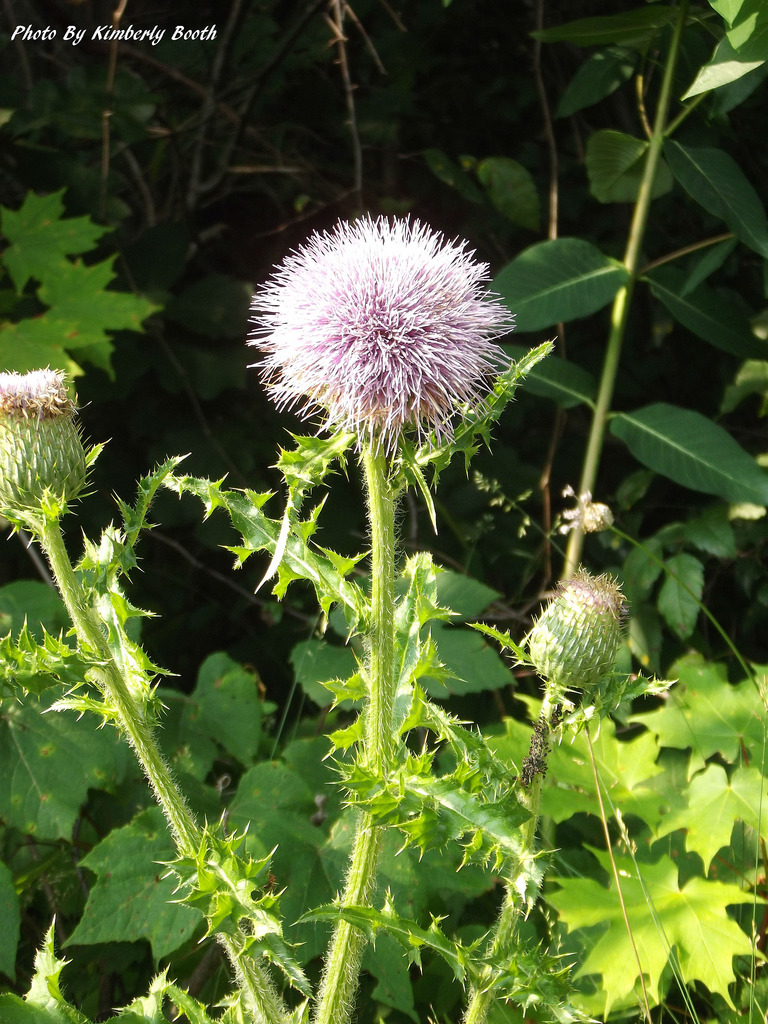Map Snapshot





23 Records
Seasonality Snapshot
Use of media featured on Maryland Biodiversity Project is only permitted with express permission of the photographer.
Pasture Thistle blooming in Garrett Co., Maryland (7/27/2019).
View Record Details
Media by
Jim Brighton.
Pasture Thistle blooming in Garrett Co., Maryland (7/18/2013).
Media by
Jim Stasz.
Pasture Thistle blooming in Garrett Co., Maryland (7/18/2013).
View Record Details
Media by
Jim Stasz.
Pasture Thistle in Allegany Co., Maryland (7/19/2016).
View Record Details
Media by
Kimberly Booth.
Pasture Thistle bloom in Garrett Co., Maryland (7/18/2013).
View Record Details
Media by
Jim Stasz.
Pasture Thistle blooming in Garrett Co., Maryland (8/5/2014).
View Record Details
Media by
Boyer and McDowell.
Pasture Thistle in Allegany Co., Maryland (7/21/2014).
View Record Details
Media by
Kimberly Booth.
Source: Wikipedia
| Cirsium pumilum | |
|---|---|

| |
| Scientific classification | |
| Kingdom: | Plantae |
| Clade: | Tracheophytes |
| Clade: | Angiosperms |
| Clade: | Eudicots |
| Clade: | Asterids |
| Order: | Asterales |
| Family: | Asteraceae |
| Genus: | Cirsium |
| Species: | C. pumilum
|
| Binomial name | |
| Cirsium pumilum | |
| Synonyms[1] | |
|
Synonymy
| |
Cirsium pumilum, the pasture thistle,[2] is a North American species of plants in the tribe Cardueae within the family Asteraceae. The species is native to the northeastern and north-central United States as well as to the Canadian Province of Ontario.[3][4]
Cirsium pumilum is a biennial or perennial herb up to 100 cm (40 inches) tall, blooming once before dying. It has leaf blades up to 30 cm (12 inches) long, with slender to stout spines. There are usually a few flower heads, sweetly scented, with pink, purple or white disc florets but no ray florets.[5]
- Varieties[1]
- Cirsium pumilum var. hillii (Canby) B. Boivin - Great Lakes region, upper Mississippi Valley[4]
- Cirsium pumilum var. pumilum - northeastern + east-central United States from Maine to South Carolina west to Ohio[3]
References
[edit]- ^ a b The Plant List, Cirsium pumilum (Nutt.) Spreng.
- ^ USDA, NRCS (n.d.). "Cirsium pumilum". The PLANTS Database (plants.usda.gov). Greensboro, North Carolina: National Plant Data Team. Retrieved 5 February 2016.
- ^ a b Biota of North America Program 2014 county distribution map, Cirsium pumilum
- ^ a b Biota of North America Program 2014 county distribution map, Cirsium hillii
- ^ Flora of North America, Pasture thistle, Cirsium pumilum (Nuttall) Sprengel, Syst. Veg. 3: 375. 1826.
